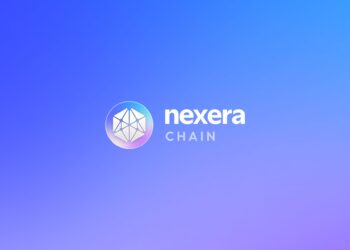The impact of blockchain technology on the global economy has been substantial and far-reaching, with its potential to transform the way businesses and individuals conduct transactions being widely recognized.
As blockchain technology continues to advance and its use cases increase, it is also having a significant impact on financial investment strategies.
The financial industry is increasingly recognizing the transformative power of blockchain technology, which offers new revenue opportunities, improves operational efficiency, enhances end-user experience, and reduces financial risk.
By enabling access to a wider pool of investors and digital financial instruments, blockchain technology is also improving accountability, transparency, and efficiency in the finance sector.
As financial institutions explore ways to leverage the full potential of blockchain technology, it is crucial that they understand its impact on their investment strategies.
This article provides an overview of blockchain technology and examines its impact on financial investing strategies.
What is Blockchain?
Blockchain is a revolutionary technology that offers a secure, decentralized, and verifiable way of recording and storing transactions. It operates through a distributed ledger system, which means that the records are stored across a network of computers, making it almost impossible to manipulate or tamper with the data.
Blockchain is most popularly associated with cryptocurrencies like Bitcoin, where it provides a secure and transparent way of recording financial transactions. However, its potential applications go far beyond just digital currencies.
One of the key benefits of blockchain technology is that it eliminates the need for intermediaries such as banks or other trusted third parties. This not only makes transactions faster and more efficient, but it also enhances the security and privacy of sensitive information.
In summary, blockchain is a game-changer that has the potential to revolutionize the way we think about data privacy, security, and trust.
Whether you’re dealing with financial transactions or sensitive personal information, blockchain provides a secure, transparent, and tamper-proof way of storing and sharing data.
How to Invest in Blockchain Technology
Although there are no ways to invest directly in a blockchain, there are companies and technologies you may invest in that are creating products and services that utilize blockchain technology. Here is a list of options you can invest in:
- Decentralized Finance (DeFi): DeFi is a disruptive financial technology that challenges the traditional centralized banking system. DeFi provides an alternative using peer-to-peer (P2P) transactions, bypassing the high fees charged by banks and other financial institutions for their services. Investors can earn returns from DeFi platforms, similar to traditional savings accounts, without the involvement of a financial institution. Some of the top DeFi stocks include Block Inc (NYSE: SQ), Riot Blockchain Inc (Nasdaq: RIOT), and Robinhood Markets Inc (Nasdaq: HOOD). Other popular DeFi options include AAVE and Synthetix.
- Metaverse Companies: The metaverse is an emerging digital world that merges virtual reality, augmented reality, and the real world. Investors can invest in the metaverse by acquiring stocks or Exchange Traded Funds (ETFs) of companies that are invested in the metaverse or by purchasing properties and assets within it.
There are several tech companies, such as Microsoft, Meta, and Alphabet, that have a stake in the metaverse, offering a multitude of options for indirect investors. - Crypto Exchanges: Crypto exchanges are platforms that allow individuals to purchase and sell cryptocurrencies. These exchanges provide the opportunity to convert one cryptocurrency to another, such as Bitcoin to Litecoin, or to purchase cryptocurrency using traditional currency, like the US dollar. By opening an account on a cryptocurrency exchange, investors can trade or invest in cryptocurrencies that are based on blockchain technology.
Impact of Blockchain Technology on Financial Investment Strategies
The following are some of the ways blockchain technology is impacting financial investment strategies:
Low Trading Costs, Greater Return Potential, and Instant Settlement
The decentralized trading environment provided by blockchain technology is a game-changer for investors. By eliminating the need for intermediaries, blockchain allows for efficient buying and selling of stocks, resulting in reduced trading costs. This is a huge advantage for investors who are looking to maximize their returns and minimize their expenses.
Additionally, the traditional process of post-trade settlement takes a significant amount of time, often over three days, due to the involvement of multiple middlemen. However, with blockchain, the transfer of assets between institutions can be recorded on a distributed ledger, enabling a faster and more efficient process. This results in instantaneous trades and settlements, providing investors with immediate access to their returns.
Investors are always looking for the best possible return on their investment, and blockchain technology provides them with just that. With its high returns and multiple profit-making opportunities, blockchain is becoming an increasingly popular investment strategy for people who are looking to grow their wealth.
As the influence of blockchain continues to grow in the investment world, it is clear that a faster and more cost-effective investment system is becoming the norm. The benefits of blockchain technology are too significant to ignore, and we will likely see more and more investors turn to the blockchain as their preferred method of investing in the future.
Greater trust and transparency
Blockchain technology brings transparency to the forefront by allowing all users to view the complete history of all transactions. Each new transfer is added as a block to the chain, creating a clear and easily traceable record of ownership.
By utilizing smart contracts within the blockchain, rules and regulations can be integrated, automatically preventing illegal activity and enforcing all agreements. This enhances trust and transparency in the capital markets.
Smart contracts on the blockchain can revolutionize various contractual arrangements by providing increased security and trust. Financial institutions are actively exploring the best ways to implement them in different situations, including reducing counterparty risk.
With the potential to reduce delays, increase efficiency and promote openness, smart contracts on the blockchain can significantly simplify investment planning. The blockchain serves as a trust protocol for coordinating between parties who may not fully trust each other.
Investment Diversification
Blockchain technology has opened up new avenues for investment opportunities. It allows individuals to invest in a range of assets, such as cryptocurrencies, businesses, and even tokenized real-world assets.
Diversification of investments is a key strategy for minimizing risk and maximizing returns. This involves spreading investments across multiple projects, tokens, and coins, reducing the potential impact of any single investment failing.
In essence, investment diversification helps to distribute risk and protects investors from substantial losses by spreading their funds across different investments.
Availability of real-time 24/7 trading
Blockchain technology has revolutionized the way exchanges operate by enabling them to function 24/7, every day of the week, without being restricted by geographic boundaries or after-hours trade issues.
The investment management industry is also benefiting from blockchain technology, particularly in the processing of mutual fund index data. The conventional method of transferring index data is time-consuming and prone to errors, as it involves multiple parties and channels.
However, blockchain technology accelerates the delivery of data and eliminates the chances of human error, making the process more efficient and reliable. It’s worth mentioning that several prominent exchanges have already adopted this technology to improve their operations.
Tokenized trading
Blockchain technology heavily relies on tokens, which are digital representations of ownership or interest connected to the blockchain. The process of transforming an asset into a token is called tokenization.
Thanks to blockchain, various assets with value can now be decentralized and tokenized. This makes it easier for investors of all types to acquire, trade, and sell previously illiquid assets such as real estate, diamonds, fine art, and even intangible assets like financial indices, patents, and copyrights.
Tokenization transforms the value of an asset, like a painting, into something that can be instantly transferred through the blockchain. Many fintech companies are exploring ways to use tokenization and related technologies on both public and private blockchains to unlock liquidity from traditionally illiquid assets.
Companies can also create digital investment instruments on the blockchain, such as non-fungible tokens, to raise funds. This opens up new opportunities for fundraising, such as through Initial Coin Offerings (ICOs).
Tokenization has the potential to revolutionize investment by democratizing access. Rather than relying on traditional managers, investors can use blockchain to receive tokens that they can easily withdraw or reinvest as they see fit.
Lowered barriers to entry and increased control
Investing has become more accessible with the help of blockchain technology. With just a smartphone and internet access, anyone can invest in any blockchain-based technology or business they prefer.
Investing in cryptocurrencies is easier than traditional assets, as anyone can sign up for a cryptocurrency exchange and get a free Bitcoin (BTC) or multi-crypto wallet. While some exchanges may require ID verification when certain limits are reached, many still don’t require identity confirmation.
Thanks to blockchain, investing can now be done directly without the involvement of intermediaries such as custodians, banks, or other third-party organizations. The investor is solely responsible for their investment, making the process more secure and streamlined.
In Conclusion,
- Blockchain is a distributed, immutable ledger that makes it easier to record transactions and track assets in a business network.
- The access to a wider investor base and other digital financial instruments made possible by blockchain technology has increased the accountability, transparency, and efficiency of the finance industry.
- Investors can invest in Blockchain technology through companies that offer blockchain-related products and services including DeFi, metaverse companies, and cryptocurrency exchanges.
- Blockchain technology is making an impact on financial investment strategies by lowering trading costs, increasing returns, enabling fast settlement, increasing trust and transparency, diversifying investment options, enabling real-time trading, tokenizing investment options, and lowering entrance barriers.
- However, whether or not you choose to invest in blockchain technology will be largely determined by the amount of risk you are willing to accept as well as the kinds of options that interest you.
Disclaimer: This article is intended solely for informational purposes and should not be considered trading or investment advice. Nothing herein should be construed as financial, legal, or tax advice. Trading or investing in cryptocurrencies carries a considerable risk of financial loss. Always conduct due diligence.
If you would like to read more articles like this, visit DeFi Planet and follow us on Twitter, LinkedIn, Facebook, and Instagram.
“Take control of your crypto portfolio with MARKETS PRO, DeFi Planet’s suite of analytics tools.”






















